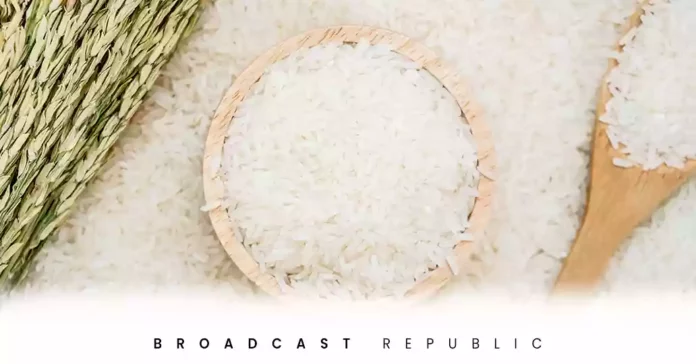Pakistan is embarking on an ambitious journey to elevate its annual rice exports to an impressive $10 billion by the year 2030, signaling a substantial fourfold increase from the current $2.5 billion benchmark. This visionary initiative is a pivotal component of the nation’s comprehensive strategy to diversify its export portfolio and explore untapped markets.
At the forefront of this endeavor is the recently convened Export Advisory Council Meeting, chaired by Commerce Minister Gohar Ejaz. Delving into the nuances of rice exports, the meeting aimed to formulate a precise roadmap to attain the $10 billion target within the stipulated timeframe.
Shehzad Ali Malik, Chairman of the Punjab Rice Research Board and CEO of Guard Agricultural Research & Services, conveyed the minister’s eagerness to align the rice export objective with the federal government’s broader goal of achieving $100 billion in exports.
Malik, deeply involved in the entire rice value chain, highlighted Pakistan’s favorable position to substantially augment rice exports. Key drivers include the use of high-yielding hybrid rice varieties and enhancements in the quality of processed grains.
With an anticipated surge to $3.5 billion in the current financial year, Malik underscored the critical role of stringent quality checks and global brand management in reaching this milestone. Projections foresee an increase to $5 billion within three years, with a subsequent doubling by 2029-30, ultimately achieving the coveted $10 billion mark.
Addressing quality standards, Malik emphasized the imperative to tackle issues related to EU alerts on pesticides. He proposed the establishment of an analytical lab for scientific assessment of maximum residue levels (MRL) in rice, potentially funded through the Export Development Fund (EDF).
In the realm of global promotion for Pakistani rice brands, Malik proposed a strategic approach involving listing fees and shelf rentals for Fast-Moving Consumer Goods (FMCG) brands in food categories, facilitated by the Trade Development Authority of Pakistan (TDAP). He stressed the importance of FMCG brands penetrating mainstream markets and suggested innovative methods, such as gondolas/displays in selected supermarket chains, with EDF support.
Moreover, Malik urged commercial counselors to forge connections with importers/distributors of FMCG handling international brands, aiming to propel Pakistani FMCG brands onto the global stage. This forward-thinking strategy, he argued, would significantly contribute to foreign earnings compared to short-term labeling initiatives. Pakistan’s vision for a thriving rice export sector appears poised for success with strategic planning and robust collaborations driving the way forward.

